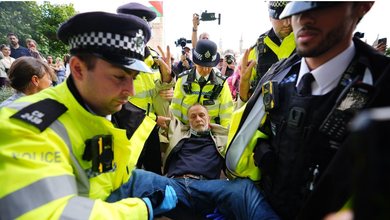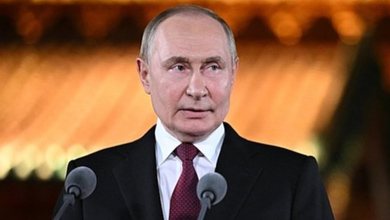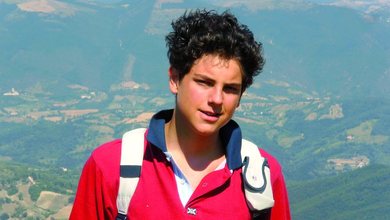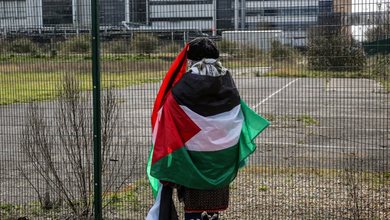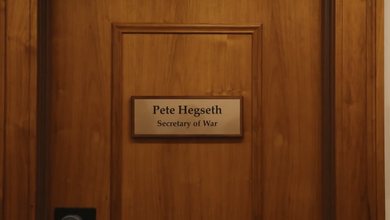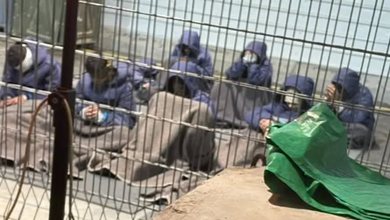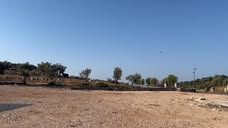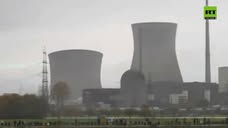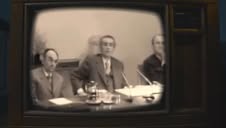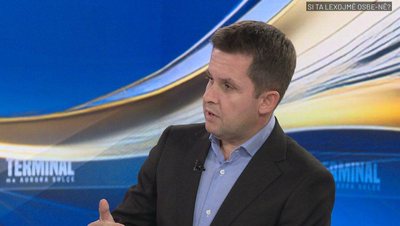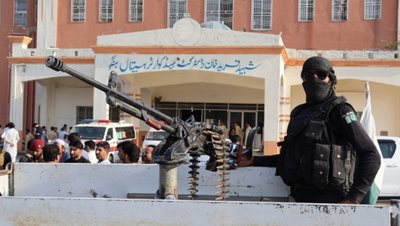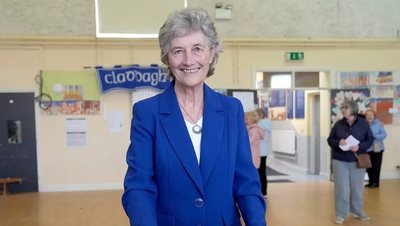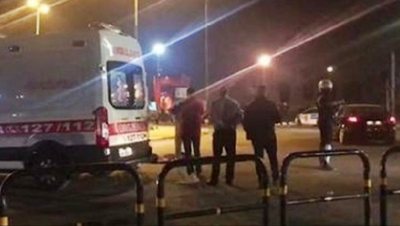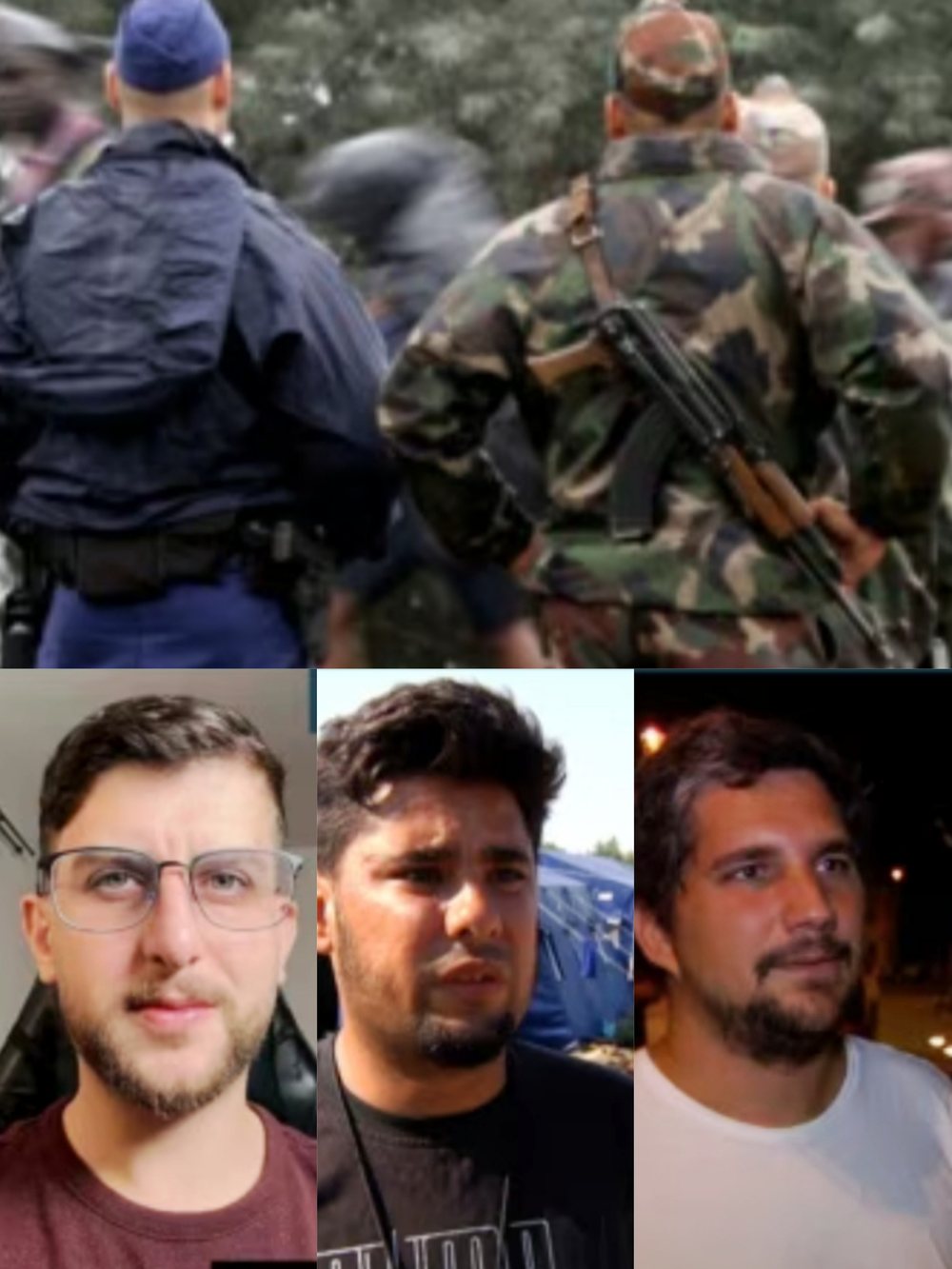
Crouched on a sidewalk near a parking lot and smoking a cigarette, Majedeldin Abdulhai was gathering strength for the second round of the journey that nearly left him dead.
This is August 2015, a period when thousands of people traveled for weeks from Turkey towards the Balkans, with the aim of applying for asylum in Western Europe.
The movements of that time are described as the largest within Europe since World War II. For the countries involved in these movements, the crisis caused major problems that continue to shape politics and society today.
Radio Free Europe has reconnected with refugees it interviewed ten years ago to understand how their lives have changed.
Majedeldin Abdulhai in Belgrade, Serbia in 2015 and in another photo taken recently in Germany.
'I had no other choice'
Abdulhai was an English literature student in Aleppo, Syria. The RFE/RL team first met him in 2015 at a refugee center in Belgrade. Abdulhai recalls how he ended up in the Aegean Sea after the dinghy he was traveling on was intercepted by a military ship.
"After two hours, the Turkish Coast Guard came and picked us up," he said.
"Then we went another way, through Marmaris in Turkey, and we found the man who sent us from Marmaris to Greece."
Abdulhai recalls how scared he was about the next route he had to take to reach Hungary, a country that at the time had built a barbed wire fence to keep out migrants.
Now 30 years old, he lives and works for a logistics company in Bad Kruznah, Germany.
Reflecting on the past, he reveals that he no longer smokes cigarettes and that he had no choice but to flee Syria, due to the civil war there, further exacerbated by foreign intervention.
"My studies had stopped. I was unemployed for more than two years. The whole situation with the rebels, the Islamic State terrorist group, Al-Qaeda, the Iranian militias... I had no choice but to flee," he said.
Abdulhai remembers that a difficult moment in his journey was when the Serbian Border Guard tried to separate him from the rest of the group.
"The first time I felt human again was when I arrived in Germany," he said, expressing his great "gratefulness" to this country, despite the racism he has faced from time to time.
SEE ALSO: Racism and xenophobia drive foreign workers away from Germany
Germany has accepted about 1 million foreigners, a political decision that has been accompanied by the growth of the anti-migrant Alternative for Germany (AfD) party.
But Abdulhai has no regrets and has already applied for German citizenship. "A part of me is German," he said.
Kemal El Shairy at the refugee center in northern Serbia on August 28, 2015 and now.
Born in Libya to a mother from the former Yugoslavia and a father from Libya, he volunteered in August 2025 to work as a translator in the refugee camp in Kanjiž, northern Serbia. He is saddened by the conditions there.
"People were sleeping on the streets. Babies were being kept in pizza boxes. Doctors were only coming twice a week because of the lack of hygiene," he said.
A decade later, El Shairy says what impressed him most was the sheer number of people.
"Since then, I've worked in several places in East Africa, in Kuwait and in several other places. I've never seen such an influx of people," he said. "There were people who left with just a bag on their arm."
That experience led El Shairy, then 28, to work in the aid sector. "It changed my life, I became a humanitarian," he said.
Shortly after the 2015 interview, Hungary and Croatia closed their borders, worsening the migrant situation in Serbia.
A report compiled by a non-governmental organization that El Shairy worked for, the Balkan Center for Migrants, noted that “tensions within the centers are increasing… there is an increase in panic and hysterical attacks, fear, depression, domestic violence, and suicidal thoughts.”
El Shairy believes that the crisis, combined with economic pressure, has had a major impact on Serbia.
"It has greatly influenced the turn to the right," he said.
"Whenever the situation gets tough economically, nationalism and xenophobia increase, and I know that people who look like me are the first targets."
El Shairy is currently living in Benghazi, Libya.
Mark Kekesi at the railway station in Szeged on August 29, 2015 and now.
From academic to electrician
From Kanjiža, human traffickers transported the groups to the Hungarian side of the border. In Szeged, 36-year-old Mark Kekesi recalls handing out free bottles of water and food at a train station.
He remembers how in 2015 people arrived in groups and that he was nervous because barbed wire fences were built.
Keksi was then a sociology lecturer at the University of Szeged in Hungary. Looking back, he likes the decision to spend his summer vacation differently.
"On the one hand, it was humanitarian work. On the other hand, it was a message that not everyone acted as the Government asked them to."
Hungarian Prime Minister Viktor Orban had vowed to seal his country's borders with barbed wire and had deployed soldiers to prevent refugees from entering Europe.
"We Hungarians are filled with fear, people in Europe are filled with fear," he said in the European Parliament on September 3, 2015.
Kekesi said that Orbán has exploited the crisis for political purposes.
"In the period from those days until the outbreak of the coronavirus pandemic, our prime minister has not spoken either inside or outside the country about anything other than illegal migration," he said.
Kekesi left academia in 2016 for “personal reasons” to work as an independent researcher. Later, a “midlife crisis” and the pandemic crisis pushed him to become a self-employed electrician in Budapest./REL


